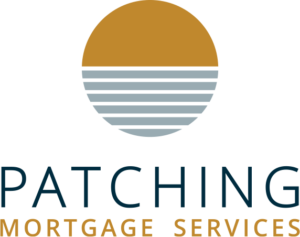A Mortgage Broker works to connect home buyers or homeowners with their best mortgage options possible. When you hire a Mortgage Broker, they will first gather and review your financial information and documentation. They’ll then look at the loan amount you’re requesting, your down payment/existing equity, income, and your credit score. Once reviewed, they’ll match you up with a number of favorable borrowing options to consider.
When you’re applying for a mortgage without a broker, you’re responsible for researching current mortgage rates, understanding mortgage terms (closing costs, fees, and other conditions), and sort through mountains of data to compare your choices.
Keep in mind that Mortgage Brokers are not bank or lender representatives. Instead, they independently research mortgage options and establish relationships with each Bank/Lender in support of YOU.
Every mortgage requires a down payment. It’s an unavoidable fact in Canada. A minimum of 5% of the purchase price is required up to $500,000 and 10% above that. Any purchase valued at a million dollars or greater requires a 20% down payment.
If you need support in coming up with your down payment, here are some good options for you to consider;
- Have your Bank automatically withdraw a set amount of funds each month into a high interest savings account.
- Ask for a Gift from an immediate family member (ie. Parent, Grandparent).
Still have questions? Contact our team to understand your options and start owning sooner.
I hate to say it, but it depends.
While historically variable rates are lower than fixed, both have specific benefits that may be suitable to your goals.
Fixed rates:
- Provide payment security. Your payment will not change throughout your term.
- Peace of Mind. Knowing what you’ll owe the Bank/Lender will allow you to budget much easier
Variable Rate
- Minimal penalty compared to a fixed rate which will allow you to rate hunt throughout the term of your mortgage.
- If you intend to flip the property or sell/move before your term is up it will allow you to maximize your profits.
There’s much more to consider when it comes to these two rate options and therefore we suggest booking a meeting with us to discuss which is best for YOU and your financial goals.
Service to clients is free of charge 99% of the time. Lenders/Banks that best fit your mortgage needs pay the Broker and therefore you have nothing to lose and everything to gain.
Give us a call if you have any further questions as we’re happy to elaborate.
As a rule, keep two percent of the purchasing price available for costs such as:
- Home Inspection
- $400-$500
- Lawyer
- $1000-1400
- Appraisal (if necessary)
- $400-500
- Property Transfer Tax
- 1% of the purchase price up to and including $200,000
- 2% of the purchase price greater than $200,000 and up to and including $2,000,000
- 3% of the purchase price greater than $2,000,000
- Moving Costs
- Title Insurance
- $150 – $400
- Property Taxes:
- If you purchase a home prior to the property tax bill being released you will be given funds to cover the sellers portion of the yearly property taxes
- If property taxes have already been paid for the year, you’ll be responsible for refunding the seller your portion of the years property taxes
There are a few ways to pay down your mortgage quicker;
- Shorten your amortization period
- Pay bi-weekly
- This works out to one extra monthly payment per year and reduces your amortization by 2.5 years.
- Take advantage of your pre-payment privileges:
- Annual Lump-sum payments
- Double up payments
- Increase your mortgage payment amount
With our team, you receive an annual assessment to review your savings and mortgage options. We can implement the choices above so that you can pay down your mortgage sooner without causing any stress to your earnings and spending habits.
In short: A Line of Credit is a loan that can be used for any purchase. It can be paid off at any time, has a maximum limit based on one’s application/income/assets, and can be either secured or unsecured. With low minimum payments and no demands to pay in full as long as the payments are up to date a Line of Credit may be an excellent choice when it comes to needing short term funds.
KEY POINTS
- A secured line of credit is guaranteed by an asset called collateral, such as a home or a car.
- An unsecured line of credit is not guaranteed by any asset—for example, a credit card.
- Unsecured credit always comes with higher interest rates because it’s riskier for the Banks.
- Both types can be used when needed and as often as required with minimum payments and no pressure to pay it all back in full.

